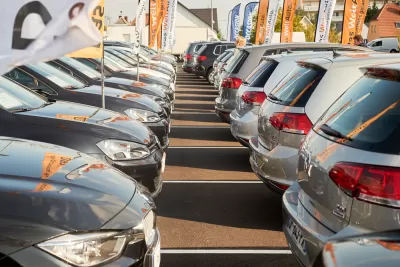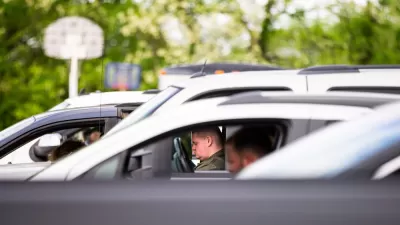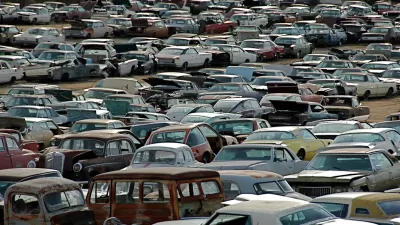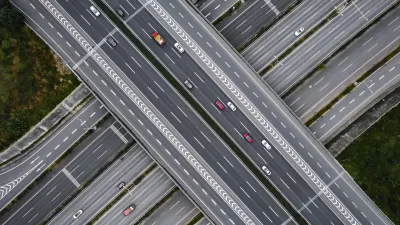Clearly, the American love affair with the automobile is far from over, despite lessons from the recession, dire environmental warnings, plummeting traffic safety, or the wishful thinking of tech companies.

Aarian Marshall pumps the break on a politically useful narrative about the demise of car ownership in the United States. Ride-hailing companies and car sharing companies claim private ownership of cars is an outdated concept, cities block streets to cars partly from the assumption that there's growing demand for car-free places, and Census data have shown a growing number of households without cars.
Still, there's an elephant in the room, according to Marshall: "Personal car ownership in the US has actually increased in the past 10 years, even in the frenzied urban places where Uber and car-share have become verbs."
There's more. "According to research from former New York City transportation official Bruce Schaller, the number of vehicles has grown faster than the population in some of the cities where ride-hail is most popular: Boston, Los Angeles, New York, Philadelphia, and Chicago."
Companies that were built on the assumption that fewer people would want to own cars in the future have also "hit the skids," according to Marshall, like Car2Go.
The reversion to the car-centric mean could be traced to post-recession austerity, according to experts cited by Marshall in the article. Unmentioned, however, is the kind of cars are buying. Consumer trends in the United States have shifted back to large vehicles, as full-size SUVs and pick-up trucks again are best sellers in the United States, despite evidence that they are unsafe for everyone inside the car and out.
FULL STORY: The Death of Cars Was Greatly Exaggerated

Alabama: Trump Terminates Settlements for Black Communities Harmed By Raw Sewage
Trump deemed the landmark civil rights agreement “illegal DEI and environmental justice policy.”

Planetizen Federal Action Tracker
A weekly monitor of how Trump’s orders and actions are impacting planners and planning in America.

Why Should We Subsidize Public Transportation?
Many public transit agencies face financial stress due to rising costs, declining fare revenue, and declining subsidies. Transit advocates must provide a strong business case for increasing public transit funding.

Understanding Road Diets
An explainer from Momentum highlights the advantages of reducing vehicle lanes in favor of more bike, transit, and pedestrian infrastructure.

New California Law Regulates Warehouse Pollution
A new law tightens building and emissions regulations for large distribution warehouses to mitigate air pollution and traffic in surrounding communities.

Phoenix Announces Opening Date for Light Rail Extension
The South Central extension will connect South Phoenix to downtown and other major hubs starting on June 7.
Urban Design for Planners 1: Software Tools
This six-course series explores essential urban design concepts using open source software and equips planners with the tools they need to participate fully in the urban design process.
Planning for Universal Design
Learn the tools for implementing Universal Design in planning regulations.
Caltrans
Smith Gee Studio
Institute for Housing and Urban Development Studies (IHS)
City of Grandview
Harvard GSD Executive Education
Toledo-Lucas County Plan Commissions
Salt Lake City
NYU Wagner Graduate School of Public Service





























